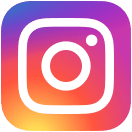As The Guardian has noted, Millennial “influencers” are the new stars of web-based advertising:
In just a few years, the power of blogs and platforms such as Instagram has created a new marketing genre that has seen brands investing heavily in collaborations with the big names in the online space.
“Instagram-famous” celebrities can earn millions of dollars promoting products and brands to their followers.
For example Nita Batra, who uses the name “Nita Mann” and the handle @nextwithnita, has an Instagram feed with 200,000 followers.
Like most influencers, she has “affiliates” — sites and businesses to which she refers her followers, and where they can make purchases.
By tagging her Instagram photos with liketoknow.it, Batra sends her followers to her liketoknow.it feed, where they can find links allowing them to buy the products she’s wearing or using in her photos.
Batra earns a commission when followers make purchases through links she shares.
Batra was unhappy when popsugar.com used her photos and posted them to its own former shopping platform, removing the links to liketoknow.it.
Batra (who attended law school before she became an influencer) filed a complaint against PopSugar, Inc. in federal court, alleging copyright infringement and removal of copyright management information in violation of the Digital Millennium Copyright Act (DMCA), among other claims.
According to the complaint, PopSugar actively “diverted commissions from the sales of products featured in the [influencers’] images to itself … in order to monetize the content for its own benefit.”
Batra’s complaint says that
When caught, PopSugar’s co-founder and CEO, Brian Sugar, attempted to minimize PopSugar’s culpability, tweeting … that the misappropriated pages were ‘intended for internal use only, [but] were mistakenly left open, albeit hidden from search engine indexing and social media.’
Batra said this excuse was false: “The pages were picked up by search engines, and were available through PopSugar’s public website…”
Batra is seeking statutory damages of up to $150,000 for each of her photos that was copied. She’s also seeking to have the case certified as a class action, so that other influencers similarly affected can join in.
The case is Nita Batra v. PopSugar, Inc., 4:18-cv-03752-KAW (N.D.Cal.)
Takeaway
A surprising number of businesses apparently don’t realize that just because an image is posted on the Internet that doesn’t mean that it’s free for anyone else to use commercially.
Unless an image is explicitly labeled as “public domain” or provided with a Creative Commons license that allows for commercial use (usually with attribution), it’s safer to assume that an online image may NOT be copied.


